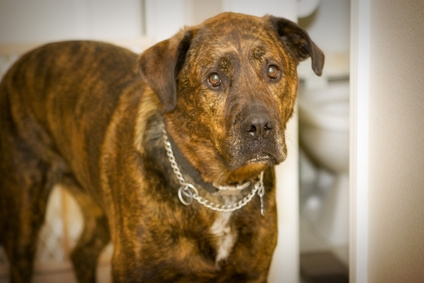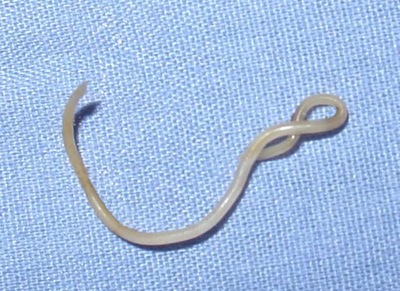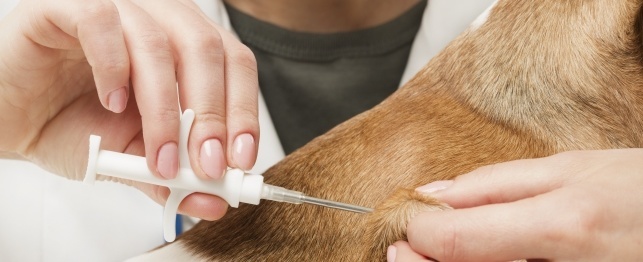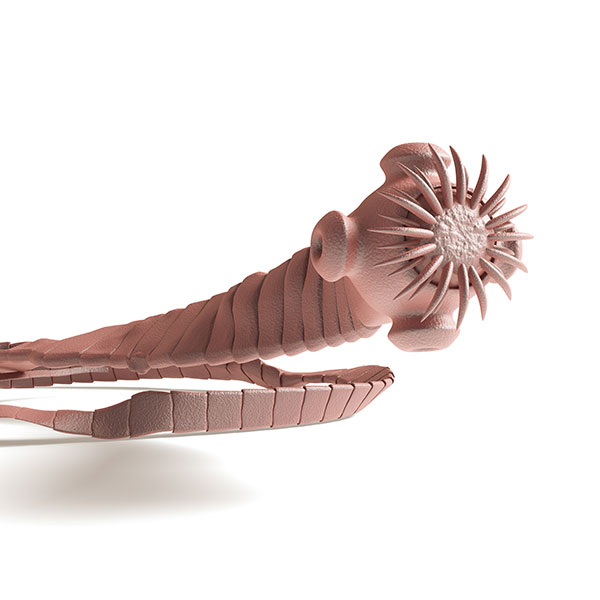Twenty percent of dog bites occur when a family member reaches to grab the dog by the scruff or collar. One doesn't need to be a rocket scientist to figure this out. Obviously, the dog has learned that when people grab him by the collar bad things often happen. Consequently, the dog becomes hand-shy, plays Catch-Me-If-You-Can, or reacts defensively. It is potentially dangerous to have a dog dodge you when you reach for his collar. For example, you need to know you could effectively grab your dog if he ever tried to dash out the front door.
So teach your puppy to enjoy being grabbed by the collar. First, prevent your pup from forming negative associations to human hands, and second, teach your pup that being taken by the collar has only positive consequences, like so:
1. If you let your puppy play without interruption, and then take him by the collar to end the play session, of course he will come to dislike your reaching for his collar because a collar grab signals the end of the play session. Starting in the house and later in the park, frequently interrupt puppy play sessions by taking your puppy by the collar, asking him to sit, praising him, offering a piece of kibble, and then letting him go play again. The puppy thus learns that being taken by the collar is not necessarily the end of the play session. Instead, a collar grab is a short time-out for refreshment and a few kind words from his owner before the puppy gets to play again. Also, interrupting play allows you to use resumption of play to reward your puppy for sitting and allowing you to take him by the collar.
2. If you lead or drag your puppy into confinement, he will no doubt come to dislike being taken by the collar, as he will come to dislike confinement. Instead, teach your puppy to enjoy confinement. Stuff a bunch of hollow chew-toys with kibble and put them in your puppy's confinement area, and then close the door with your puppy on the outside. In no time at all, your puppy will beg to go inside. Now simply instruct your pup, "Go to your bed (or crate)" or "Go to your playroom (long-term confinement area)" and open the door. Your pup will happily rush inside and settle down peacefully with his chew-toys.
3. Above all, promise your puppy that you will never (never) call your puppy and then grab him by the collar to reprimand or punish. Doing this just once will make him hate coming when called and hate when you reach for his collar. If you punish your puppy after he comes to you, he will take longer to come the next time. Eventually slow recalls will become no recalls. Your puppy will still misbehave; only now you will be unable to catch him! If you ever punish your puppy after taking his collar, he will soon become hand-shy, evasive, and defensive.

 How to Put Muscle Weight on a Dog Fast
How to Put Muscle Weight on a Dog Fast
How to Put Muscle Weight on a Dog Fast
How to Put Muscle Weight on a Dog Fast
 Roundworms in Dogs: Symptoms, Treatment, and Prevention
What are roundworms?
Roundworms
Roundworms in Dogs: Symptoms, Treatment, and Prevention
What are roundworms?
Roundworms
 Microchipping for Your Dogs Safety
Microchipping for Your Dogs Safety
Microchipping for Your Dogs Safety
Microchipping for Your Dogs Safety
 Dog Cancer: What's Common?
Approximately half of mammary tumor
Dog Cancer: What's Common?
Approximately half of mammary tumor
 Tapeworms in Dogs: Symptoms, Treatment, & Prevention
What are Tapeworms?
Tapeworms are
Tapeworms in Dogs: Symptoms, Treatment, & Prevention
What are Tapeworms?
Tapeworms are